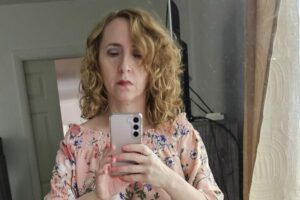Not long ago, I faced a medical nightmare that nearly ended my life. It wasn’t just one issue — it was a total breakdown of my body from the inside out.
It started with unbearable chest pain, shortness of breath, and intense abdominal pressure.
I went to three different hospitals before I was treated. The first one ran no images at all, gave me blood thinners and said that should help.
So, we left and went to another hospital. I was told I had clots, but I should follow up with my PCP on Monday. I didn’t trust that, so we went to a hospital about an hour away.
By the time I got to the ER, I was on the edge of death. Scans revealed massive blood clots:
- Pulmonary embolism — clots had reached my lungs
- A completely blocked portal vein cutting off blood from my intestines to my liver
- A clot in the superior mesenteric vein, threatening to kill my intestines
- A clot in my inferior vena cava (IVC), the body’s main drainage vein
Later, I was diagnosed with antiphospholipid syndrome (APS), which is a rare autoimmune disease that increases the risk for deadly clots
This wasn’t isolated. It was a full-body crisis. My liver was in danger of failure. My intestines were at risk of dying. My lungs were struggling to oxygenate. The pressure on my heart was immense — with clots in major veins, my heart had to work overtime just to keep blood moving. It was at risk of collapsing under the strain.
I endured five major procedures in five days:
- A transjugular intrahepatic portosystemic shunt (TIPS) procedure to reroute blood around the clots
- A thrombectomy to extract clots from the deep veins
- Splenic embolization to stop bleeding
- A drain that pulled over 500cc of internal blood
- Emergency surgery to stop bleeding in my stomach and pelvis
I lost so much blood I needed a transfusion. I developed sepsis, a full-body infection. I was placed in ICU, fading in and out. Doctors didn’t know if I would survive.
This event touched every major organ — liver, lungs, intestines, heart. It wasn’t a scare. It was a war inside my body. One most people don’t survive.
Recovery has been really tough and ongoing. Some days hit harder than others, testing my patience and strength. While I’m thankful for any progress, my body is still healing, and I’m dealing with serious health challenges. A recent ultrasound showed a heterogeneous coarse liver echotexture — basically, changes in my liver tissue that need close attention. This ties into persistent stomach issues like discomfort, nausea, and digestion problems that affect my everyday life.
Living with blood clots has left me feeling isolated and misunderstood. I’ve battled life-threatening complications, endured intense pain, and faced it all while feeling like no one truly sees what I’m going through. People think I’m strong, but they don’t realize how broken I feel inside.
I’ve learned how fragile life is and how strong I am, even when I feel broken. I’ve learned to speak up for myself, to value every small victory, and to never take health or peace for granted. Most of all, I’ve learned that silence can be heavy, but my story matters.
Trust your body and speak up—don’t let anyone dismiss your pain. Get checked early, ask questions, and push for answers. Blood clots are serious and often invisible, but your life matters. Stay informed, stay aware, and know you’re not alone in this fight.
Recovery isn’t a straight path — it’s full of ups and downs — but I’m determined to keep pushing forward and fighting through it.




